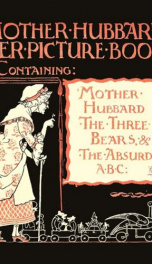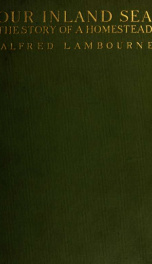Zwemer Amy E.

Samuel Marinus Zwemer (April 12, 1867-April 2, 1952), nicknamed The Apostle to Islam, was an American missionary, traveler, and scholar. He was born at Vriesland, Michigan. In 1887 he graduated from Hope College, Holland, Mich., and in 1890, he graduated from New Brunswick Theological Seminary, New Brunswick, N. J. After being ordained to the Reformed Church ministry, he was a missionary at Busrah, Bahrein, and at other locations in Arabia from 1891 to 1905. He also traveled widely in Asia Minor, and he was elected a fellow of the Royal Geographical Society of London. In 1929 he was appointed Professor of Missions and Professor of the History of Religion at the Princeton Theological Seminary where he taught until 1951. He married Amy Zwemer. He was famously turned down by the American Missionary Society which resulted in him going overseas alone. He edited the publication The Moslem World for many years. He was influential in mobilizing many Christians to go into missionary work in Islamic Countries. According to Ruth A. Tucker, Samuel Zwemer's converts were "probably less than a dozen during his nearly forty years of service" and his "greatest contribution to missions was that of stirring Christians to the need for evangelism among Muslims"[1] Besides editing The Moslem World, a quarterly scholarly periodical – 37 vols.(1911-47), and the Quarterly Review (London), he wrote the following books: He also wrote an article describing his travels in Oman and the Trucial Coast (now U.A.E.), which famously features the earliest known photograph of the Qasr al-Hosn in Abu Dhabi:
do you like this author?
What readers are saying
What do you think? Write your own comment on this book!
write a commentWhat readers are saying
What do you think? Write your own comment on this author!
write a commentBook list

Topsy-Turvy Land
Series:
Unknown
Year:
Unknown
Raiting:
5/5
This book was written by a husband and a wife Samuel Marinus Zwemer and Amy E. Zwemer. They both were missionaries and travelers, with their interest focused on the Arabian countries. Samuel Zwemer often called The Apostle to Islam lived for quite a long time (1891-1905) at Busrah, Bahrein and in other places in the Middle East doing research there and missionary work as well. He also became a member of the Royal Geographical Society of London and on its behalf traveled to Asia. During the last years of his life he served as a professor of missions and the history of religion as the Princeton Theological Seminary. Samuel Zwemer is known as the author of many books devoted to the Arabs and Arabian countries. For instance, he was an editor of the famous publication The Moslem World. Also he encouraged many outstanding researches to travel to the Middle East as missionaries and study this region. His wife Amy Zwemer was an American missionary as well working in the Arabian countries where she met and married her co-worker. She created Two Young Arabs including The Travels of Noorah and Jameel and co-authored various books with her husband, among them we can name Topsy-Turvy Land (1902), and Moslem Women (1926).
Show more
add to favoritesadd In favorites
Book list

Topsy-Turvy Land
Series:
Unknown
Year:
Unknown
Raiting:
5/5
This book was written by a husband and a wife Samuel Marinus Zwemer and Amy E. Zwemer. They both were missionaries and travelers, with their interest focused on the Arabian countries. Samuel Zwemer often called The Apostle to Islam lived for quite a long time (1891-1905) at Busrah, Bahrein and in other places in the Middle East doing research there and missionary work as well. He also became a member of the Royal Geographical Society of London and on its behalf traveled to Asia. During the last years of his life he served as a professor of missions and the history of religion as the Princeton Theological Seminary. Samuel Zwemer is known as the author of many books devoted to the Arabs and Arabian countries. For instance, he was an editor of the famous publication The Moslem World. Also he encouraged many outstanding researches to travel to the Middle East as missionaries and study this region. His wife Amy Zwemer was an American missionary as well working in the Arabian countries where she met and married her co-worker. She created Two Young Arabs including The Travels of Noorah and Jameel and co-authored various books with her husband, among them we can name Topsy-Turvy Land (1902), and Moslem Women (1926).
Show more
add to favoritesadd In favorites
What readers are saying
What do you think? Write your own comment on this author!
write a commentGenre
if you like Zwemer Amy E. try:
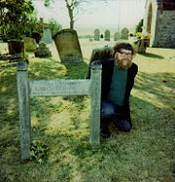
Nesbit Edith
(Author)

Lambourne, Alfred
(Author)

S. H. Kolee
(Author)

Sophocles
(Author)

jeremiah curtin
(Author)

Glyde, John
(Author)

Raine Miller
(Author)

Christie Agatha
(Author)

Jeff Kinney
(Author)

Webster, Jean, 1876-1916
(Author)
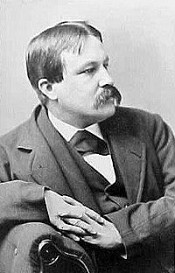
Howells William Dean
(Author)

John Steinbeck
(Author)

Munro, Neil, 1864-1930
(Author)

Terhune Albert Payson
(Author)

Markus Zusak
(Author)

Hemingway,Ernest.
(Author)
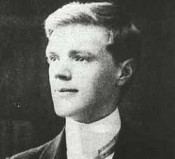
Lawrence David Herbert
(Author)

Nicholas Sparks
(Author)

Jon Krakauer
(Author)

Bannerman Helen
(Author)
readers also enjoyed
What readers are saying
What do you think? Write your own comment on this author!
write a commentGenre
if you like Zwemer Amy E. try:
readers also enjoyed
Do you want to read a book that interests you? It’s EASY!
Create an account and send a request for reading to other users on the Webpage of the book!

